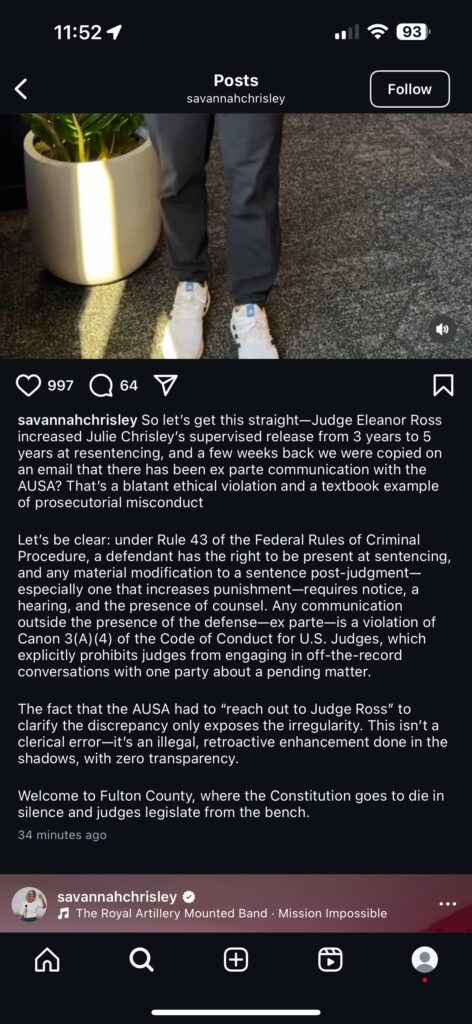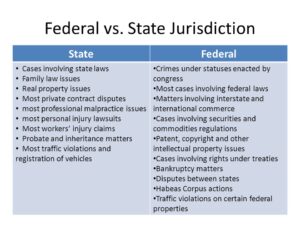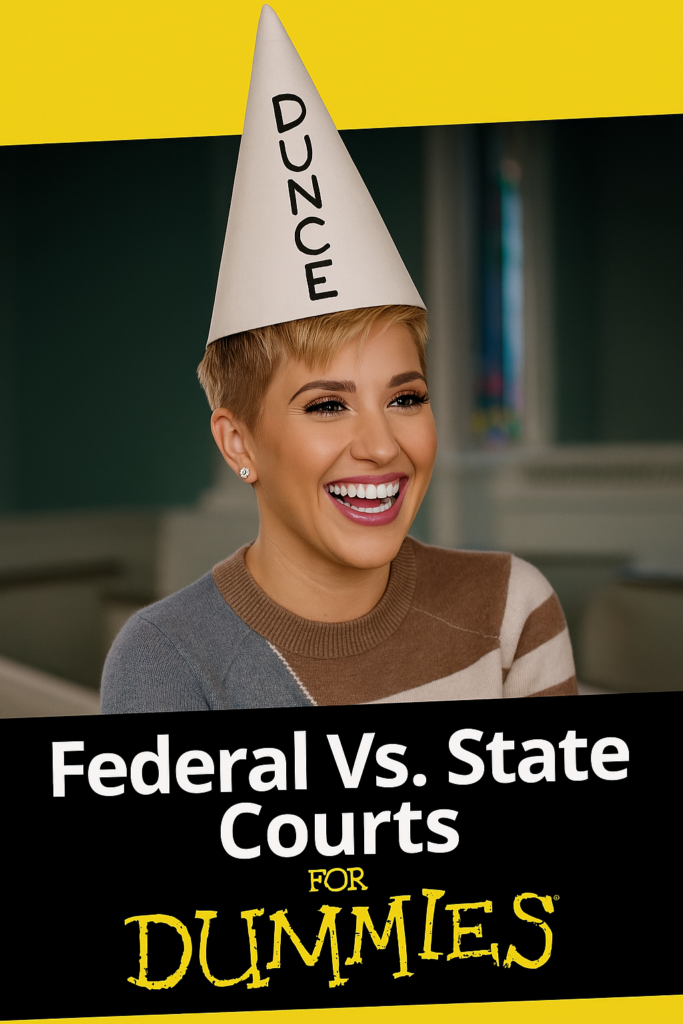Federal vs. State Courts: A Simple Explanation
What Are They?
Federal courts deal with cases involving federal laws, like crimes against the U.S. government or disputes between states. For example, if someone evades federal taxes or commits fraud against a federally insured bank, it goes to federal court. State courts, like those in Georgia, handle cases under state laws, such as speeding tickets, divorces, or state tax issues.
The Chrisley Case: Why Federal?
Todd and Julie Chrisley’s case was in federal court because they were charged with bank fraud and tax evasion, which are federal crimes. They allegedly defrauded banks insured by the federal government and hid income from the IRS, a federal agency. The FBI investigated, and U.S. Attorneys prosecuted the case in federal court because it involved national laws, not just Georgia state laws.


Comparing to Georgia State Courts
In Georgia, state courts include superior courts (for serious crimes like felonies), state courts (for misdemeanors), and county judges who handle local issues like small claims or traffic violations. If the Chrisleys had only been charged with violating Georgia state tax laws without the federal component, their case might have stayed in state court. But federal crimes mean federal court, with stricter rules and potentially harsher sentences.
Key Differences
- Federal courts have appointed judges for life; Georgia state judges are elected for fixed terms.
- Federal procedures are more formal and slower; state courts can be faster.
- Federal sentences, like the Chrisleys’ 12 and 7 years, can be harsher due to mandatory minimums.
For more details, check out U.S. Courts and Georgia Courts.
Federal vs. State Courts in the Chrisley Case
This investigative piece explains the federal versus state court systems, using Todd and Julie Chrisley’s case as an illustrative example. Tailored for clarity, the piece simplifies legal jargon to make the complexities understandable, particularly addressing Savannah Chrisley’s confusion.
Introduction: Setting the Stage for Savannah
Savannah, I know it’s overwhelming. Let’s break down why your parents’ case ended up in federal court.
Federal vs. State Courts: The Big Picture
The U.S. court system splits into two branches:
- Federal Courts: Crimes against U.S. government, federal laws, interstate issues.
- State Courts (Georgia): Traffic, divorce, local crimes.
The Chrisley Case: Why Federal Court?
Federal charges include bank fraud and tax evasion investigated by federal agencies like the FBI and IRS. Because they involved federal issues, the case went to the Northern District of Georgia’s federal court.
Roles of Federal Agencies: FBI, IRS, and U.S. Attorneys
- FBI: Investigated bank fraud.
- IRS: Investigated tax evasion.
- U.S. Attorneys: Prosecuted the Chrisleys, in this case the US Attorney was BJ PAK – a Trump appointed US Attorney.
Georgia State Courts: Structure and County Judges
State courts include superior, state, juvenile, probate, and magistrate courts. They handle state and local issues—not federal crimes.
Comparing Federal Court Process to State Courts
| Aspect | Federal Courts | Georgia State Courts |
|---|---|---|
| Jurisdiction | Federal laws | State laws |
| Judge Selection | Appointed for life | Elected for fixed terms |
| Procedures | Formal and slower | Generally faster |
| Sentencing | Harsher, mandatory minimums | Lighter, varies widely |

Conclusion: Wrapping It Up for Savannah
Savannah, your parents faced federal charges, involving national laws, stricter courts, and harsher penalties. State charges, meanwhile, remain local.
FULTON COUNTY HAS NOTHING TO DO WITH YOUR PARENTS… STOP BEING DUMB
Key Citations

